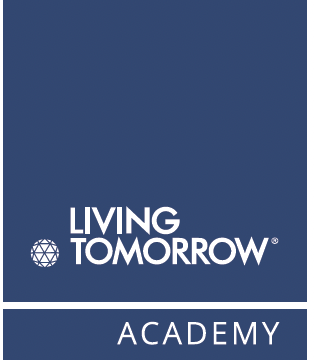Last week, I had the privilege of taking another enlightening journey through the realm of scenario planning and future strategy with a group of high-flyers from different disciplines. It was the first time this group subjected their carefully prepared scenarios to a stress test. This moment, brimming with a delightful mix of joy, anticipation, and a touch of nervousness, was a milestone for all involved.
During our session, we delved into integrating and evaluating each part of the AS-IS SWOT analysis - Strengths, Weaknesses, Opportunities, Threats - across different future scenarios. This rigorous process is important to discern the continued relevance of these elements under different future conditions and to recognize the importance of certain strengths (such as a strong brand image) within each potential future.
We call this process the stress-testing of strategic business concepts. This process has the purpose of refining our visions and strategies for the future.
There are always three challenges during such an initial stress test that we, as its facilitators, must know how to manage well.

Discover our Living Tomorrow Academy offering
Do you know our training program?
Help your team embrace ambiguity, maintain structured flexibility, and to learn trust the continued iterative process.
Marijke Verhavert, TomorrowLab- The first stress test is a vivid reminder that the true essence of scenario planning lies in its unique ability to inspire flexible and creative thinking about the future. The complexity and excitement of scenario planning require an open mind and a willingness to break conventional patterns of thinking. Indeed, the initial confrontation with four different future scenarios requires a special mental effort. Participants have to navigate flexibly through different possible worlds, which is both uncomfortable and exciting. This initial leap of faith is crucial; it requires participants to let go of their conventional way of thinking and embrace the unprecedented possibilities of each future. So this first stress test gauges whether the team is ready to start working with the scenarios, shown from the tendency to stay in vague generalities to even the risk of ridiculing scenarios. These reactions underline how difficult it is to fully dive into scenarios without restraint. Yet, with techniques like the 'impact wheel', we are always able to encourage participants to think further and unlock the full potential of their insights.
- The initial stress test offers valuable insights into how effectively the scenarios have been developed for practical strategic stress testing. It's important to recognize that perfection is not attainable on the first attempt. Crafting comprehensive and high-quality scenarios is a structured and meticulous process, in which the involvement of numerous stakeholders and experts is necessary. Following their creation, these scenarios enter a phase of continuous refinement. The first stress tests play a crucial role in this ongoing improvement, helping to fine-tune and enhance the scenarios for future applications. Anticipating this as a facilitator, is crucial in the process.
- While it is important to define the "as-is" business concepts during the preparation phase, there is a delicate balance. You risk investing too much in preparation and leaving no room for discovery and adaptation during the stress-test phase. It is not good for group dynamics if discussions arise during the stress test about the meaning of what you are stress testing, but you cannot proactively create completely perfect definitions. If you try to do that, you will lose a lot of time. In other words, on the one hand, it is essential to avoid debating definitions of your current state during the stress test (e.g., what do we mean by 'our ecosystem' today?), as this can negatively affect group dynamics. On the other hand, definitions will have to be refined after the first stress test in your strategy process. You cannot avoid this. This is why I want to emphasize the importance of remaining flexible during the stress-testing phase, which is seen as a discovery period for your strategy. As a facilitator of stress-test scenarios, you need to understand the nuances of preparation, flexibility, and the iterative nature of defining business concepts.
Let me conclude that the art of stress-testing business concepts with scenarios lies in helping your team embrace ambiguity, maintain structured flexibility, and to learn trust the continued iterative process. This will allow the team to navigate the complexity of scenario planning with confidence and clarity unveiling insights for their future business and strategy.

